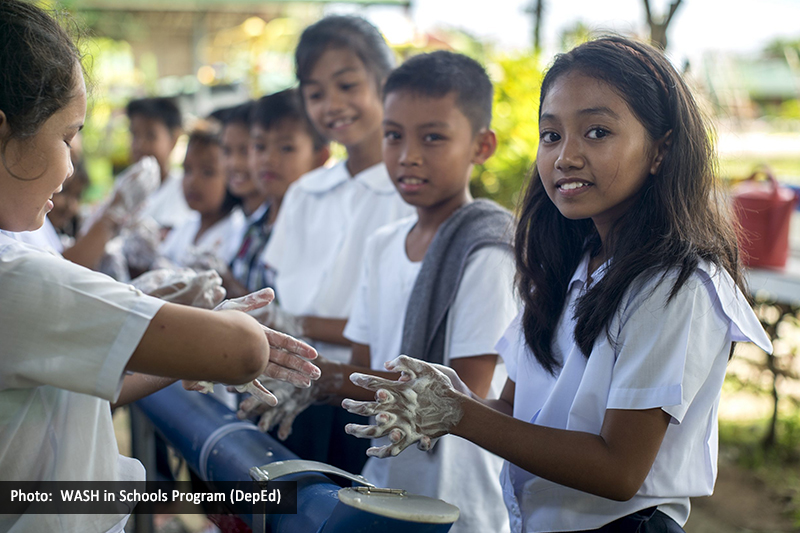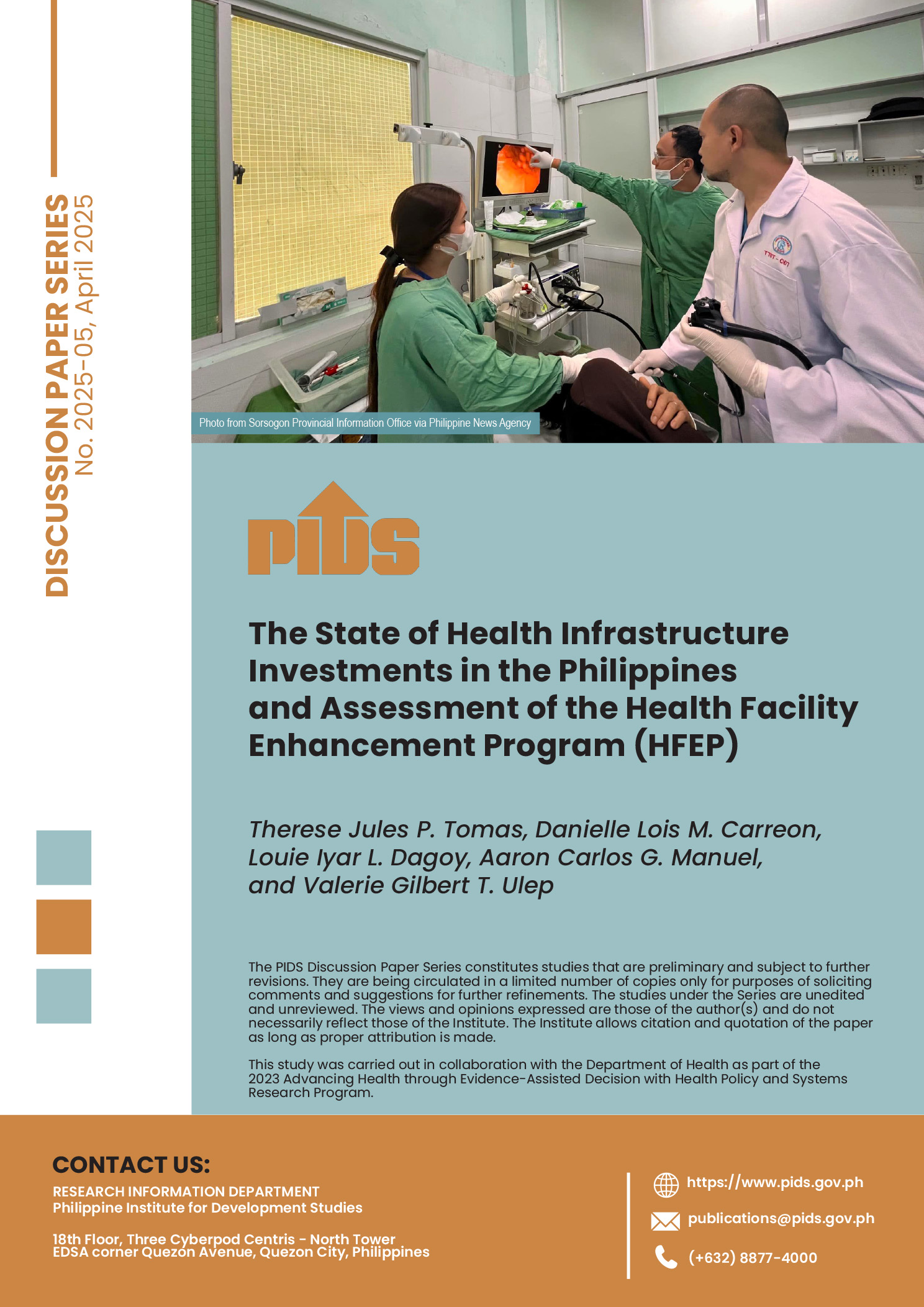
Diarrhea continues to be a leading cause of illness and hospitalization nationwide despite the Philippines’ economic growth and ongoing development initiatives. A joint study by the Philippine Institute for Development Studies (PIDS) and the United Nations Children’s Fund (UNICEF) Philippines identifies the lack of access to clean water, proper sanitation, and hygiene (WASH) facilities as the root cause of this preventable health issue, particularly in impoverished and underserved communities.
The study, “The Last-Mile Challenge: Water, Sanitation, and Hygiene (WASH) in the Philippines” authored by PIDS Senior Research Fellow Valerie Gilbert Ulep, Research Assistant Jann Trizia Talamayan, Research Specialist Lyle Daryll Casas, UNICEF Philippines WASH Specialists Jon Michael Villaseñor, and Elmira Bacatan, finds that only about half of the population has access to safely managed WASH services. These deficiencies are most severe in the country’s poorest regions.
Up to 50 percent of the population, including children under five, drink “surface water” in some municipalities of the Bangsamoro Autonomous Region in Muslim Mindanao and Region IV-B. Such reliance on an unsafe water source is a persistent public health threat as it exposes communities to heightened risks of waterborne diseases like diarrhea.
“The inability of certain locations to access safe water has been associated with the urban-rural disparity, with millions of Filipinos in poor regions enduring unsafe water conditions,” the authors said.
Households in the lowest wealth quintile have significantly lower access to safely managed drinking water and sanitation compared to wealthier households, further underscoring the socio-economic divide. “About two-thirds of the poorest Filipinos still lack access to basic WASH facilities,” the study emphasized.
The health consequences of poor WASH conditions are devastating, particularly for children. In 2019, poor WASH practices accounted for 86 percent of diarrhea-related deaths in the country. Of these fatalities, 35 percent were children under the age of five.
“Diarrhea can harm children’s overall well-being, including their physical health and nutritional status. This, in turn, can significantly impact their growth and development,” the authors explained. Frequent bouts of diarrhea not only lead to nutrient loss but also suppress appetite, worsening malnutrition rates among children in low-income households.
The PIDS-UNICEF study points to governance and infrastructure gaps as critical barriers to universal WASH access. Fragmented governance—where overlapping responsibilities are spread across multiple agencies—hinders the effective implementation of WASH initiatives, particularly in rural and remote areas.
Efforts such as the National Sustainable Sanitation Plan (NSSP), have made limited progress. The study reports that only 33 percent of barangays have been certified as having eliminated open defecation, far below the 80 percent target set for 2023. Achieving zero open defecation is essential for reducing environmental contamination and curbing public health risks, the study stresses.
To close these gaps, the authors call for a comprehensive and integrated approach encompassing infrastructure development, behavioral change, targeted interventions, and streamlined governance. Such a multifaceted strategy is essential to address the diverse challenges in delivering WASH services effectively, particularly in underserved areas.
“Bridging these gaps through streamlined governance, efficient resource allocation, and targeted local interventions in underserved areas is vital to achieving universal and equitable access to safe water and sanitation,” the study stated.
Strengthening local governance and improving coordination among agencies are critical to these efforts.
Read the full study at https://bit.ly/pidsdp2024-19. ###












